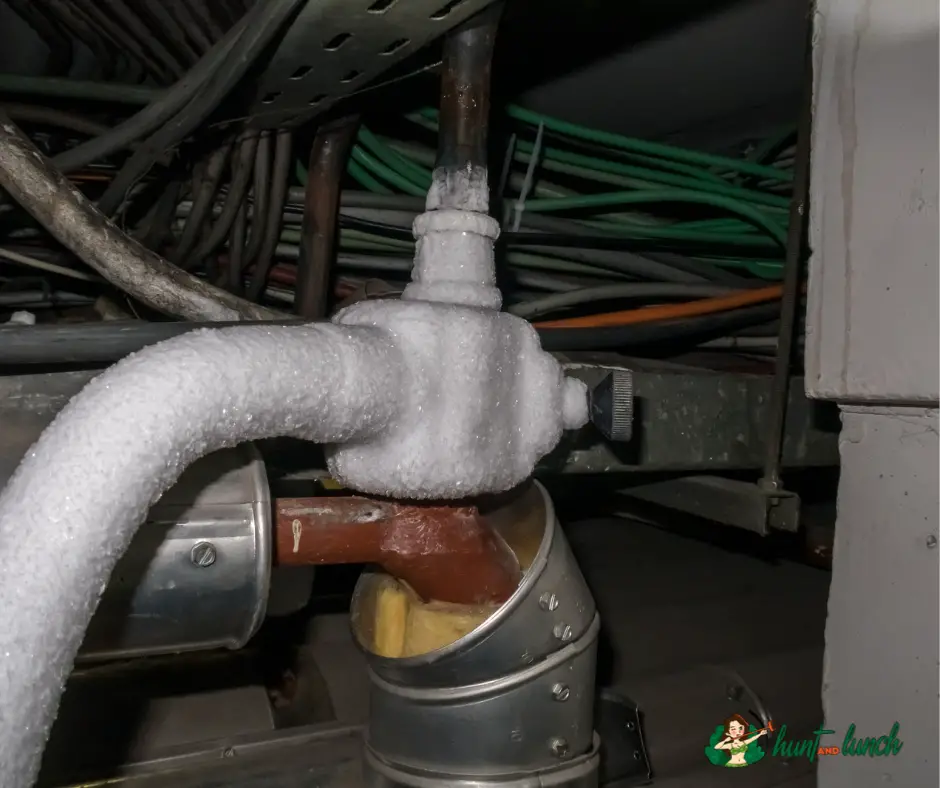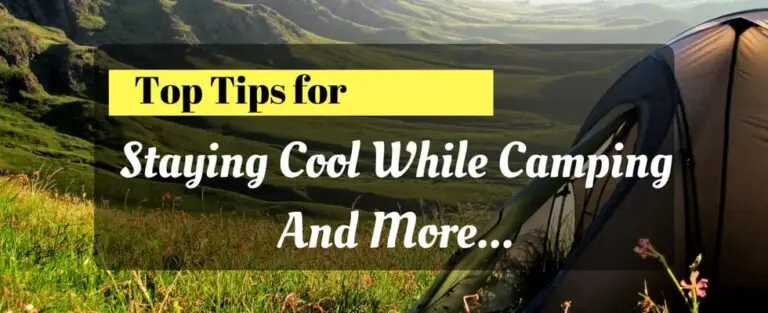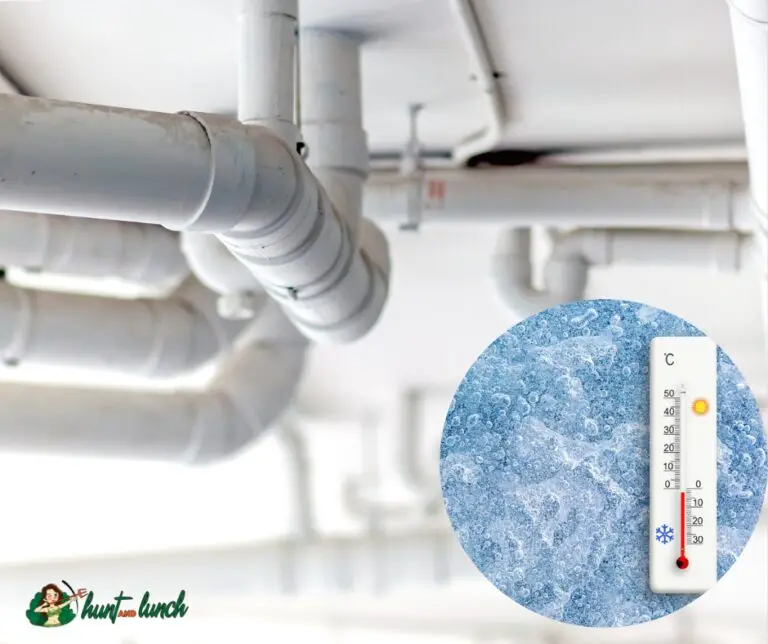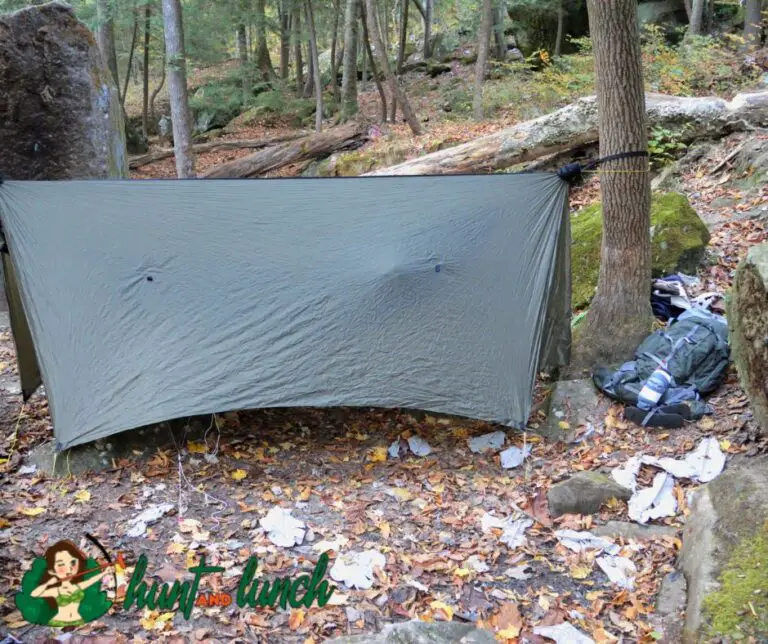
Camping out during the winter is fun in all aspects, but it also has unique challenges. One such challenge is the below-freezing temperatures you might encounter and what it holds for you, your camper, and your camping activities. And many people do wonder; at what temperature will pipes freeze in a camper?
While there is no exact temperature at which your camper pipes can freeze, they can if the temperature in your camper gets too cold for too long. Most lines in a camper will start showing signs of freezing as soon as the temperature drops below the freezing point of 32 Fahrenheit or 0o C. But don’t worry; there are things you can do to prevent this from happening.
How Does The Temperature Affect Your Camper’s Pipes?
It’s never fun to have frozen pipes in your camper, but it doesn’t have to be a deal breaker. Frozen pipes can happen in any season, but the temperature at which they freeze differs from one winter camping spot to another.
To determine whether your pipes will freeze when you camp for the night and how much time you’ll have before this happens, you need only know how cold it gets at night and what kind of insulation is available around your plumbing system.
To understand how temperature affects pipes, we first need to know why they freeze in the first place. There are three main reasons for this:
- Insulation around the pipes must be inadequate or missing entirely (often due to a lack of proper installation).
- Pipes were exposed during construction or renovations without additional insulation added afterward.
- The weather outside drops below freezing.
What Temperature Will Your Camper’s Pipes Freeze?
RV pipes can freeze at temperatures as low as 32 degrees Fahrenheit or 0 degrees Celsius. While this may seem like a pretty high temperature, the freezing process will happen much faster if the ground is frozen and your water lines are in direct contact with it.
How to prevent Frozen Pipes in Your Camper
Invest in special insulation for your pipes
If you want to go the DIY route, you can insulate your pipes by wrapping them in fibreglass insulation or foam tape. These are easy to apply and inexpensive. They work by providing an extra layer of protection over your pipes, making it harder for the colder temperatures to get to them.
Use heat tape on your RV pipes
A similar product called “Heat Tape” is available at most hardware stores. It will protect the pipes from freezing temperatures by providing a little extra heat.
It should be noted that Heat Tape is not intended for indoor use and may cause smoke if there’s an issue with other electrical components in your camper. If this sounds like something that could happen to you, it might be better to invest in different ways of prevention.
Use a space heater
This is an easy and effective way to keep pipes from freezing in cold weather or even if you live in an area where it stays pretty cool all year long. Just turn on the space heater when you leave for work, then turn it off when you return home.
Using thermal blankets
Try placing insulation around the pipe or wrapping it with thermal blankets before leaving for work. This inexpensive solution might be worth trying out if nothing else works for keeping your RV plumbing warm enough during cold weather conditions.
Use a heated water hose
One way to ensure that your pipes don’t freeze is by using a heated water hose. These hoses can be plugged into the same outlet as your electric heater, or they can be plugged into a 12v outlet if you have one available.
The downside of this method is that it’s more expensive than just running one large heater, but if it’s cold outside, this might be worth the extra cost. Heated water hoses are safe to use in your RV and easy to install.
Insulate your RV walls
You can insulate your camper by installing foam board insulation or a thermal blanket. These are effective ways to help keep the heat inside your RV, preventing pipes from freezing.
There is also reflective insulation that works well for RVs. It reflects the sunlight and helps keep out any cold air from outside your camper. This type of insulation has been used for decades, but it’s still one of the most effective methods available today.
Keep the water flowing frequently
Turning your faucets on regularly will ensure that there is always water moving through the pipes and that they do not freeze. The moving water creates energy that prevents them from freezing or bursting quickly, especially if you have a larger volume of liquid passing through at once.
What Happens When Your RV Pipe Freezes
When your RV pipe freezes, it can lead to a few different problems:
Frozen pipes can crack
Frozen pipes can crack if they are cold for too long. This is why it’s essential to insulate your pipes and avoid freezing in the first place.
Once your pipes are frozen, there are usually two options: you can either replace them or thaw them out by running hot water through them, which will likely cause damage as well.
Water expands and contracts when it thaws and freezes, unlike pipes that are often rigid.
Any joints will warp and bend until they reach their limit. This process makes them crack and leak, so you may have to replace them.
Loss of access to running water
Water will not flow through a frozen pipe and this is the most common symptom of frozen pipes in an RV. They might be frozen if it’s cold outside and nothing is coming through the lines.
In other words, you won’t have access to any running water until those pipes thaw out again. This could affect where you want to set up camp and how much money you spend on repairs later down the road.
It likely damages your water pump
The water pump is expensive to replace and very difficult to work on. The gaskets, seals, motors, and many other components can all be damaged by freezing or dry conditions. If the pipes freeze and the engine keeps running dry, it will strip its bearings and grind until it can’t work anymore.
Can RV Pipes Freeze in One Night?
RV pipes can freeze in one night. If the temperature is below freezing for long enough, your pipes can become frozen.
This is why keeping your water heater on when temperatures are below freezing is essential. Even if you don’t use hot water immediately, keeping your tank heated will prevent it from getting too cold and causing damage to your plumbing system.
Conclusion
If you’re looking for an easy way to keep track of the temperature in your camper or RV, a thermometer can be a great addition to your kitchen. Thermometers are available from many manufacturers, but we recommend checking out the Cropsey Digital Thermometer, which offers precise readings and is easy to use.

I’m Cindy, a free-spirited outdoor enthusiast. Since childhood, Our family frequently goes on weekend camps and my father, who was a skilled hunter, used to teach my siblings and me valuable things about wildlife survival. I made this blog to share my knowledge, experiences, and tips.






